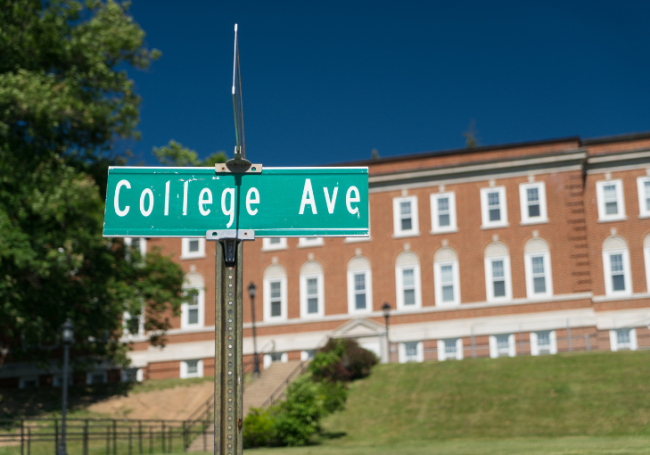You have /5 articles left.
Sign up for a free account or log in.

West Virginia University
Backyard Productions
I have only met West Virginia University president E. Gordon Gee once—at an event in Washington’s Mayflower Hotel staged by NAFSA: Association of International Educators to present the 2019 Senator Paul Simon Award for Comprehensive Internationalization to five colleges for their leadership in global education. My college was receiving the award (for the second time, actually). So, too, was WVU. I remember two things about President Gee particularly. He was wearing polka dot socks and sat with crossed legs in a way to make them visible. And he was effusive in his pride that WVU was being honored for its global vision.
As Gee put it, there is “probably only one instrument in this country, which is called a university or college, which allows us to have conversations that go across various parts of the human existence.” He noted he came from a small Utah town and explained how going on a Mormon mission in which he learned two languages “opened up the world to me … I want to have the same thing for every student that I impact.”
Fast forward to now. Gee’s and WVU’s priorities have clearly changed. The university’s Board of Governors, with the president’s agreement, eliminated all foreign language degrees, including major programs in Chinese, French, German, Russian and Spanish and minor programs in Arabic, Italian and Japanese, and cut the number of faculty in the Department of World Languages, Literatures and Linguistics from 24 to seven. In the face of protest of these cuts, the university relented only to allow some continuing face-to-face instruction in Chinese and Spanish.
Discussions that run “across various parts of the human existence” at WVU will be narrower and done in English. Worse yet, the decisions in West Virginia will likely resonate elsewhere. Back at the NAFSA event, Gee noted the importance of entering into conversations about global education with other institutions. One can imagine how such conversations will go now.
The rationale for the cuts in foreign languages and other programs at WVU is familiar: low enrollments, budget pressures and the need to focus resources on fields that seem more viable from the standpoint of jobs. Having served as provost of a college distinctive for its focus on language and global education for 25 years, I am keenly aware of these concerns, including, regrettably, not reauthorizing faculty lines for fiscal reasons.
I also know that each of the rationales for cuts can be met with persuasive counterarguments. Language programs can generate enrollment, and they operate at substantially lower expense than, say, STEM programs. They can be cost-efficient. Language study imparts valuable, marketable skills such as analytical and writing ability, beyond of course the potential for fluency in a foreign language and culture to open the door to careers in an ever more globalized economy. Moreover, why educating students in foreign languages, such as Russian, is vital to our national interest should be obvious to anyone reading the news.
All this has been pointed out by the many critics of WVU’s plans. There is, however, an additional context that needs emphasis. I return to Gee’s laudable characterization of higher education as a unique vehicle for conversation across the multiple dimensions of human experience. Retreating from foreign language—and more broadly dissolving other programs integral to a full embrace of human endeavor—undermines that imperative. It closes doors to students at the very time in their lives when openness to new experiences and possibilities is at a premium. And it corrodes the commitment to the university of professors even from fields unaffected by cuts, as the overwhelming WVU faculty vote of no confidence in Gee starkly demonstrates. Budgets must balance; economic imperatives must be addressed. But the heart of the place also must be cared for.
Gee’s remarks at the NAFSA event were a powerful statement of a university’s fundamental purpose and its highest priority. Sadly, today that priority counts for less at WVU. I wonder if the polka dot socks have fared better.







.jpg?itok=YusUVfky)
